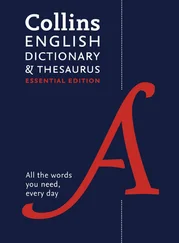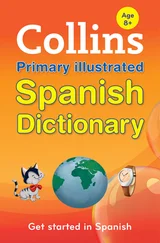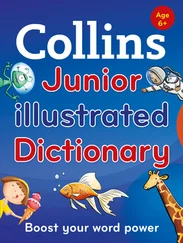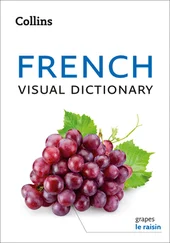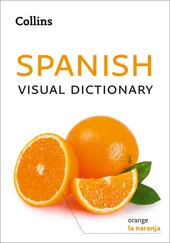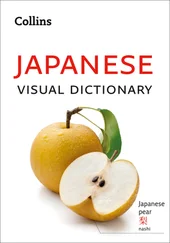The Web Tip icon alerts you to where relevant website addresses appear in the text. If you are browsing through the book or specifically looking for website information, these icons will take you straight there.
WEB TIP
Helpful tips throughout have been highlighted in tinted panels.
 Write a letter by hand rather than using a word processor if you want it to be more personal or intimate.
Write a letter by hand rather than using a word processor if you want it to be more personal or intimate.
1
BEFORE YOU BEGIN
THE PURPOSE
• WHY WRITE?
• THE PEN
• PEN OR MOUSE?
• CHOOSING YOUR MATERIALS
• WRITING TOOLS
WITWOUD: Madam, do you pin up
Your hair with all your letters?
MILLAMANT: Only with those in verse, Mr
Witwoud. I never pin up my hair with prose.
William Congreve, The Way of the World (1700)
Why not telephone? Before you set pen to paper or mouse to mat, ask yourself why you need to write a letter. Think about your reason for writing. Do you want, or need, to make a permanent statement and, if you do, and your letter is put in a box and filed, would you be embarrassed to see that very same letter turn up again in twenty-five years’ time? These are the first questions to ask yourself when you think about whether you should be writing a letter at all.
Generally speaking, we write because the process of putting words to paper is more effective than speech. It demands the sole attention of the recipient while being read and can be more intimate than speech; it is certainly more durable.
Hundreds of letters are opened every morning. You will want your particular missive to be the one that is clearest on the page and therefore read first, and you will want it to be understood immediately and acted upon without delay.
Ask yourself:
• Do I know what my message is?
• If yes, then is my message necessary?
• If yes, then is the recipient my friend?
• If yes, then would a telephone call be more appropriate?
• If no, then is this mainly a social or a professional communication?
• If professional, then am I trying to make an impression?
• If yes, then will I be embarrassed to be reminded that this letter exists in a year’s time?
• If no, then continue.
The modern fountain pen was invented by Lewis Edson Waterman in 1883 and technology hasn’t looked back since. Waterman created a special device which managed to slow down the ink feed to the nib and thereby reduced the chances of any extra ink leaking from the pen. The age-old habit, familiar to cinema-goers all over the world, of dipping a quill into an ink pot was instantly eliminated. Writing became faster – and faster still in 1943 when Laszlo Biro, a Hungarian inventor, patented his quick-drying, ball-point pen. Since Biro’s new invention did not leak at high altitude and could even be used underwater, it was offered as a writing tool to US and UK forces during the Second World War. It was an immediate hit. But the revolution had only just begun.
The world’s first ‘proper’ computer was built in 1948. It was called the Manchester Mark I and stored and processed any information fed into it very quickly by use of an electronic transistor.
In 1958 Texas Instruments, an American firm, produced the first integrated circuit or silicon chip. All the electrical components in the computer were now combined into one slice of silicon, a type of quartz which was grown artificially and cut into very thin slices. Up to 500 chips could be made from each of these slices and each of these chips could contain, in turn, up to 500 photographic copies of the design of the electrical circuit. In layman’s terms, silicon chips are minute and contain a lot of information. The silicon chip enabled the arrival, in 1982, of the word-processor as a mainstream writing tool. Nowadays, things are even easier. Computer programmes have been developed which introduce the concept of formula letters, facilitate the addressing of envelopes and introduce the idea of instant mass mailing.
 Write a letter by hand rather than using a word processor if you want it to be more personal or intimate.
Write a letter by hand rather than using a word processor if you want it to be more personal or intimate.
We now have a whole spectrum of ways to convey our message. The crucial part is deciding which is the right one for you. Just because a word-processing programme exists, this doesn’t mean that you necessarily have to use it. The decision is yours.
Main types of communication:
• handwriting
• word-processed letter
• fax
• email
Ask yourself:
• Is this letter to a friend?
• Is it urgent?
• Is it complicated?
• Is it personal?
• Does it involve figures and charts?
• Should you have written it yesterday?
• In what form would you want to receive this information?
Of any courteous letters, now: There are so few.
Ben Jonson (1616)
Once you have come to grips with the idea that your letter may exist for ever, and yet have still decided to take the plunge, then your next step must be to decide on the most suitable medium for your communication. Is the correspondence friendly, is it an apology and how much information needs to be imparted?
Writing is a slow business. We think much more quickly than we write and pen and ink merely add to the laboriousness of the process. If you wish to convey the idea that you have poured precious, loving care into your correspondence, then old-fashioned penmanship would be the most suitable choice.
Handwritten letters, in other words, demonstrate the fact that the person who sent them cares.
 A printed letter can be impersonal but will always be legible.
A printed letter can be impersonal but will always be legible.
The main negative aspect of a handwritten letter, mundane though it might be, is that a lot of people’s handwriting is not very pretty. There’s really little point putting in the extra time if no one will be able to read your letter anyway. Be honest with yourself. Is your handwriting easily legible? You already know what you are trying to say. Bear in mind that your reader might have to guess.
Word-processing is the composition of a document using a personal computer. Clearly, when a lot of facts are involved a word-processed letter will always be more effective, but for, say, a bereavement note it might be totally inappropriate. The process of computing can sometimes make the task of letter writing seem very industrial and rather formal but the results are sure to look modern, clear and businesslike.
On the plus side, with today’s printers, you can choose a particular font or paper size or graphic design in order to make your word-processed letter look softer or more casual. In any event, the printed letter is now so ubiquitous that a typewritten letter is unlikely to send out any particular signals. There are, today, very few occasions when even a social correspondent would be shocked to receive a letter in a printed format – although, of course, it is still more flattering to receive a handwritten communication.
| Handwritten |
Word-processed |
| Wedding congratulations |
Letter to bank |
| Bereavement |
CV |
| Love letters |
Letters featuring |
| Birth congratulations |
graphs or facts |
|
Explanatory letters |
There is one pitfall to this apparent ease of communication, however, which many computer users fail to see. Just because it looks good instantaneously, doesn’t mean it’s necessarily right. The words flow fast – communication speeds are beginning to catch up with the speed of thought – but that doesn’t make them lovely. It is very easy to miss a mistake on a screen and it is very easy to believe that your letter is as stylish in content as it is in appearance. Just remember that it may not be …
Читать дальше
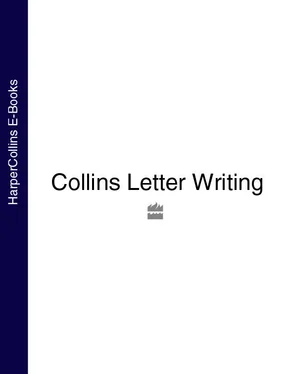
 Write a letter by hand rather than using a word processor if you want it to be more personal or intimate.
Write a letter by hand rather than using a word processor if you want it to be more personal or intimate.